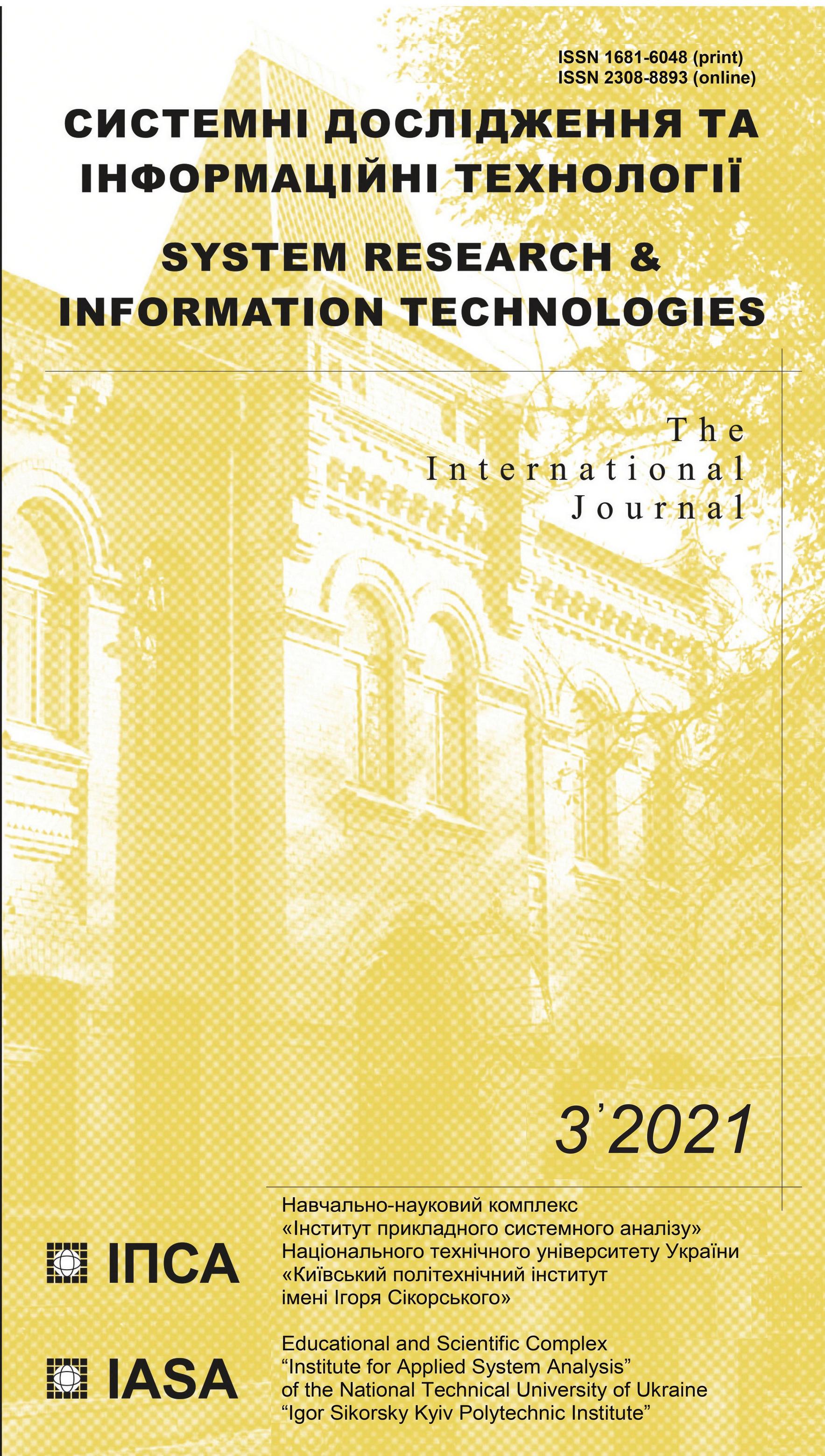Analysis and review on fuzzy evaluation of the performance
DOI:
https://doi.org/10.20535/SRIT.2308-8893.2021.3.07Keywords:
information and communication network, data processing system, ontology, model, analysis, scaling, class, relationsAbstract
In modern conditions a comprehensive analysis of development trends and their effectiveness in various areas of human activity increasingly requires the analysis of data accumulated in numerous documents stored on the global network. Such an analysis is based on annual results in many areas of research, time trends and keywords. This analysis has certain peculiarities: it requires an analysis of not always accurate numerical information, comparison of qualitative indicators, obtaining both qualitative and quantitative characteristics, as well as the use of reference information for researchers and decision makers in related fields. In this regard, in recent years, a fuzzy assessment based on fuzzy mathematics is increasingly used in all types of assessing the effectiveness of various activities. The paper deals with conducting a bibliometric study based on the Extended Science Citation Index (SCI-E) and fuzzy performance measures to understand research trends and areas of focus. This paper takes the relevant scientific papers in Web of Science database as the research object, and analyzes the research trends with the help of bibliometrics. The results show that the number of papers published in the world is on the rise. The number of papers published in China and Iran is higher than that in other countries and regions. However, the number of papers cited in the United States and Turkey is higher than that in other countries or regions. Islamic Azad University is the largest. The research topics focus on fuzzy sets, fuzzy logic, genetic algorithms and performance evaluation. The research hotspots before 2011 included expert systems, neuro-fuzzy systems, and pattern recognition. After 2011, the research hotspots became neural networks, fuzzy sets, and machine learning.
References
G. Fan et al., “A hybrid fuzzy evaluation method for curtain grouting efficiency assessment based on an AHP method extended by D numbers”, Expert Systems with Application, 44, pp. 289–303, 2016,
E.J. Lusk, “Evaluating performance statistics used to monitor performance – a fuzzy approach”, Fuzzy sets and systems, 5(2), pp. 149–157, 1981.
S.J. Deutsch and C.J. Malmborg, “Evaluating organizational performance-measures using fuzzy subsets”, European journal of operational research, 22(2), pp. 234–242, 1985.
D.L. Mon, C.H. Cheng, and J.C. Lin, “Evaluating weapon system using fuzzy analytic hierarchy process-based on entropy weight”, Fuzzy sets and systems, 62 (2), pp. 127–134, 1994.
H. Ishibuchi, T. Nakashima, and T. Murata, “Performance evaluation of fuzzy classifier systems for multidimensional pattern classification problems”, IEEE transactions on systems man and cybernetics part b-cybernetics, 29(5), pp. 601–618, 1999.
S.H. Tsaur, T.Y. Chang, and C.H. Yen, “The evaluation of airline service quality by fuzzy MCDM”, Tourism management, 23(2), pp. 107–115, 2002.
C.T. Chen, C.T. Lin, and S.F. Huang, “A fuzzy approach for supplier evaluation and selection in supply chain management”, International journal of production economics, 102(2), pp. 289–301, 2006.
G. Kou, Y. Peng, and G.X. Wang, “Evaluation of clustering algorithms for financial risk analysis using MCDM methods”, Information sciences, 275, pp. 1–12, 2014.
Z. Turskis, V. Kersuliene, and I. Vinogradova, “A new fuzzy hybrid multi-criteria decision-making approach to solve personnel assessment problems. Case study: directo selection for estates and economy office”, Economic computation and economic cybernetics studies and research, 51(3), pp. 211–229, 2017.
M.L. Tseng, M.K. Lim, W.P. Wong, Y.C. Chen, and Y.Z. Zhan, “A framework for evaluating the performance of sustainable service supply chain management under uncertainty”, International journal of production economics, 195, pp. 359–372, 2018.
Laikuang Linab, Yimin Xiaab, and Dun Wuc, "A hybrid fuzzy multiple criteria decision-making approach for comprehensive performance evaluation of tunnel boring machine disc cutter", Computers&Industrial Engineering, vol.149, 106793, 2020.
Y.L. Wang, L. Li, and K. Wang, “An online operating performance evaluation approach using probabilistic fuzzy theory for chemical processes with uncertainties”, Computers&Chemical Engineering, vol. 144, 107156, 2021.
Zhang Yanan and Zhang Ling, “Research on the Same Disciplinary Field's Academic Evaluation System in the Views of Scientometrics”, Agricultural Library and Information, 30(11), pp. 57–61, 2018.
Qiu Junping, Duan Yufeng, Chen Jingquan, etc., “The retrospect and prospect on bibliometrics in China”, Studies in Science of Science, 21(2), pp. 143–148, 2003.
W.T. Chiu and Y.S. Ho, “Bibliometric analysis of tsunami research”, Scientometrics, 73, pp. 3–17, 2007.
Q. Ji, X. Pang, and X. Zhao, “A bibliometric analysis of research on Antarctica during 1993–2012”, Scientometrics, 101, pp. 1925–1939, 2014.

